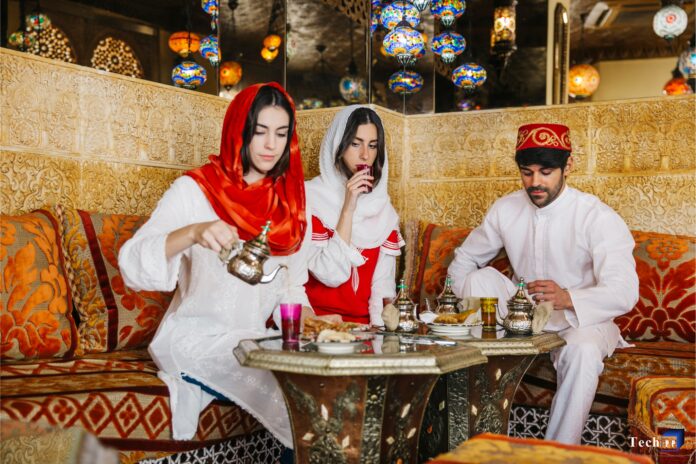Evırı! In todays interconnected world, where texts images and sounds leap across borders in an instant, some words still hang on to home, carrying the weight of identity history and belonging. Evırı is one of them a name almost invisible on globehopping tongues, yet thick with meaning for the ears that know its cradle.
So what is Evırı, where does it draw breath, and how does it slip into everyday talk outside its hometown?
What follows is a short walk through the word its roots the warmth it holds and the way it still walks alongside Turkish neighbours year after year.
Understanding the Word Evırı
Evırı, softly spoken eh-vuh-ruh, sits on the border of dialect and custom, shying away from any tidy English label. It offers no one-to-one dictionary match, because its spirit lives in the mix of welcome memory stories and feelings that sit at the heart of Turkish culture-community hospitality shared history and a bond that ties people together.
At its core Evırı is the glow of togetherness: a picnic a wedding a night under the stars where bodies gather but hearts meet too. Its far more than a label; its the pulse of a people.
Origins and Cultural Roots
Though scholars disagree on its precise linguistic origin, many Anatolian villagers tie the word Evırı to:
- life in close-knit, rural hamlets
- Seasonal feasts and harvest reunions
- Shared planting, weeding, and gathering
- Storytelling, music, and circle dances with relatives
In these situations, Evırı is less a solitary emotion and more a joint act. It can name:
- Neighbours arriving after the fields are clear
- Grandmothers guiding children through old recipes
- Dancers moving in unison under darkening skies
- Fleeting moments of joy, sorrow, or collective remembrance
Because the past and present overlap, Evırı feels both ancient and immediate.
Evırı in Everyday Life
Even city-dwellers with little time for country rhythms carry Evırı in their routines. It emerges in:
🫂 Family Celebrations
Weddings, births, even funerals reopen the same loop. By cooking, singing, and holding long vigils together, people renew the cultural thread.
🍲 Food and Sharing
A Turkish meal rarely exists for hunger alone. When friends knock unexpectedly at the door, rice is scented, tea is poured, and plates appear-not as duty, but as the urge to meet.
🎶 Music and Dance
Evırı comes alive in folk music, the soaring notes of the saz, and group dances that unite people in joy and reverence.
🏡 Guest Culture (Misafirperverlik)
Turks regard a visitor as a gift, and this generous spirit echoes Evırı by creating room for others and strengthening community ties.
Why Evırı Still Matters Today
In an age marked by speed and personal screens, Evırı stands as a reassuring retreat. It quietly teaches people to:
- Treasure connection more than solitude
- Honor the weight of shared memory and spoken lore
- Delight in giving without keeping a ledger
Across Turkish communities far from home, recreating Evırı through song, shared stew, or a quick hug helps hold the culture in place.
Modern Adaptations and Expressions
Though a corner house with music still paints the clearest Evırı picture, fresh versions keep appearing:
- Local centers and street festivals offer Evırı to zooming youth.
- Online forums devoted to old recipes or tunes act as virtual porches.
- Films and essays dig into how Evırı shapes story and self.
Whether in a cramped Istanbul flat or a Brooklyn café, the spirit of Evırı endures—sometimes named, other times simply felt.
Comparative Cultural Concepts
Evırı may not have a direct English equivalent, but it shares emotional territory with other cultural concepts:
| Culture | Concept | Similarity to Evırı |
|---|---|---|
| Danish | Hygge | Cozy togetherness and warmth |
| Japanese | Ibasho | A place where one feels accepted |
| Arabic | Tarab | Musical ecstasy in group experience |
| Indian | Adda | Informal group conversation and bonding |
This shows that while Evırı is uniquely Turkish, the human longing for shared experience and belonging is universal.
Q&A: Everything You Never Knew You Wanted to Ask About Evırı
Q: Is Evırı an official word in Turkish?
A: Not really. It lives more in speech than in print, showing up in conversations from certain regions and packing a warmth that formal dictionaries miss.
Q: Can you slip Evırı into a sentence?
A: Sure. You might say, “O günkü evırı unutulmazdı—herkes gülümsüyordu, yemekler harikaydı, ve müzik ruhumuza dokundu.”
Translation: The evırı of that day was unforgettable-everyone smiled, the food was wonderful, and the music touched our souls.
Q: Does Evırı lean toward religion or stay secular?
A: It stays cultural and emotional, not a doctrine. Still, you find it often during Ramazan Bayramı or Kurban Bayramı, when large families come together.
Q: How does Evırı differ from plain hospitality?
A: Hospitality is part of Evırı, yet Evırı is bigger. It weaves emotional ties, mutual support, and a shared spirit into one warm package beyond simply hosting.
Q: Can a non-Turk actually feel Evırı?
A: For sure. Anyone who joins a heartfelt, open, community-driven gathering-especially in a Turkish setting-can experience Evırı even if the word is new.
Conclusion
Evırı is more than a word; it serves as a window into the emotional heart of Turkish culture. The term embodies the spirit of togetherness, festivity, and communal identity, reminding us that, amid digital clamor and constant distraction, the human longing for connection remains enduring.
Whether one is dancing in a village square, passing around a pot of lentil soup, or recalling old stories with family, Evırı is present-in the laughter, the quiet pause, the exchange of knowing glances.
You do not have to speak Turkish to understand it.
You only need to belong-even for an instant.


